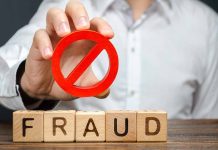
(NewsSpace.com) – Over the past few years, there has been increasing concern surrounding the use of nuclear weapons. North Korea has launched several missiles, Russia has invaded Ukraine and all but said out loud that nuclear war is on the table, and Iran is circumventing sanctions and working hard to develop its nuclear program.
The Doomsday Clock is set to 90 seconds to midnight, indicating a real global threat. That’s why authorities around the world work double time to prevent materials from falling into the wrong hands. The Department of Justice recently announced charges against a Japanese national for allegedly trafficking nuclear materials.
Yakuza Leader Charged
On February 21, the US Attorney’s Office for the Southern District of New York announced a superseding indictment against yakuza crime syndicate leader Takeshi Ebisawa. It charges the suspect with “conspiring with a network of associates to traffic nuclear materials from Burma to other countries.” Ebisawa had previously been arrested and charged in April 2022 alongside a co-conspirator, Somphop Singhasiri of Thailand, for numerous drug trafficking and firearms offenses.
Events Leading to Charges
The events leading up to both men being charged date back to 2020. That year, an agent with the Drug Enforcement Administration (DEA) went undercover posing as a weapons and narcotics trafficker who had an associate, an Iranian general, who wanted to purchase nuclear material. The agent connected with Ebisawa and Singhasiri, speaking with the pair several times throughout the year.
Ebisawa reportedly sent the agent a series of pictures of materials that he claimed contained radioactive material, along with pages of lab analyses showing the thorium and uranium content of each. The DEA agent then agreed to work with the yakuza leader in brokering the sale with his so-called associate. At that time, the indictment alleges Ebisawa offered up plutonium that was even more “powerful” and could help develop nuclear weapons. That led to a series of meetings where the agent was able to see samples of the nuclear material up close.
The DEA then looped in Thai authorities to seize the materials, which were then turned over to US law enforcement agencies. A US nuclear lab tested the materials and found “the isotope composition of the plutonium found in the Nuclear Samples is weapons-grade,” which means in sufficient quantities it could be used for the development of nuclear weapons.
There are eight counts in total, with Ebisawa charged with seven, and Singhasiri with two. Both men are currently facing life in prison if convicted.
Copyright 2024, NewsSpace.com










